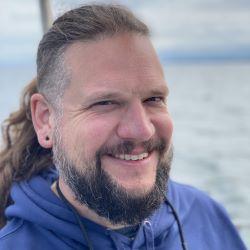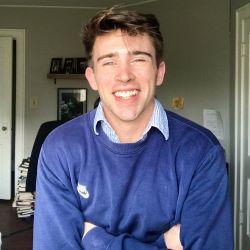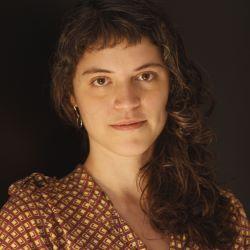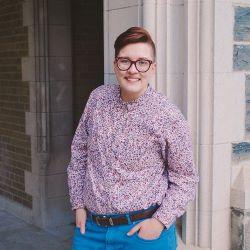Announcing 2022-2023 Graduate Labor Research Grant Recipients
Each year, the Harry Bridges Center for Labor Studies awards thousands of dollars in research funding to University of Washington graduate students and faculty. Since 1992, the Center has awarded over one hundred grants, producing dozens of reports, books, articles, and more. We are pleased to announce the recipients of Labor Studies graduate student research funding for the 2022-2023 academic year.
|
Yasmin Ahmed, Department of Geography Keep Fish Indigenous: Indigenous Food Sovereignty, Genetically Engineered Salmon, and Industrial Aquaculture in the Pacific Northwest Genetically engineered salmon pose huge risks to Indigenous ecologies and the environment, and further enclose resources for corporate use, against the consent and voiced opposition of Indigenous peoples and people of color who are most impacted. This research project focuses on the coalition work happening across the United States and examines the marketization and commodification of watersheds, the ocean, and the beings that live within and depend upon these ecologies. Building away from these frameworks, this project seeks to offer alternative visions and solutions grounded within Indigenous environmental scholarship, a network of care and coalition, and BIPOC imaginaries of kinship and caring labor that stretch through and beyond capitalist dominations of our waterways. |
|
Kurt Ellison, School of Marine and Environmental Affairs Securing Equity for Workers in the Pacific Northwest Offshore Renewable Energy Supply Chain Ellison’s research will explore equity for maritime and waterfront workers. Washington stakeholders and policymakers aim to transition the state’s maritime economy toward a “blue economy” that includes offshore renewable energy. The blue economy, a maritime expression of the green economy, embraces high levels of both ecological sustainability and social equity. However, equity measurement criteria remain understudied. This project will interview workers from the supply chain to better understand equity using their own words and visions for future jobs. Results will inform policy decisions and operational guidelines for Washington-based blue economy projects while moving towards a sustainable and equitable future. |
|
Alec Fisher, Department of English Locating Sex Work within the History of U.S. Prison Labor: Washington State Penitentiary’s Sex Worker Organizing and Working-Class-Culture While the history of prison labor and sex worker organizing are both well-documented, the history of sex work inside prisons has been given little scholarly attention. In order to draw more scholarly attention to this intersection, this project seeks to publish an academic article on the literary and historical archives of Men Against Sexism (MAS), a 1970s LGBT prison organizing group located in Washington State Penitentiary in Walla Walla, Washington. This article will explore this archive to understand how one group of incarcerated sex workers were able to locate the place of the prison sex trade within the larger systems of racial, patriarchal and capitalist exploitation. |
|
Clara Lemme Ribeiro, Department of Geography Here and There: Brazilian immigrant workers' arrangements of labor and social reproduction Ribeiro’s research addresses the articulation between labor, social reproduction and migration projects, interrogating how race, nationality, gender, class, and migratory status intersect to create conditions of precarity. Through the particular case of Brazilian immigrant workers in the US, Ribeiro investigates how labor under precarious conditions supports familial arrangements of social reproduction between origin and destination. Support includes remittances, or sending financial support, and other border-spanning familial obligations. Fieldwork encompasses Brazilian workers in Boston and Los Angeles, as well as their family members residing in Brazil. The research aims to produce a nuanced, multi-layered analysis of production and reproduction. Recipient of the 2022-2023 Charles Bergquist Labor Research Grant |
|
Frances O'Shaughnessy, Department of History Black Revolution on the Sea Islands: Empire, Property, and the Emancipation of Humanity O’Shaughnessy’s research project historicizes nineteenth-century practices of freedom and property amongst Gullah Geechee peoples in the low country, with principal attention paid to the Civil War and Reconstruction. The Gullah Geechee people are the descendants of Africans who were enslaved in indigo, cotton, and rice fields on the lower Atlantic coast, and the low country is a region along South Carolina’s coast, which includes the Sea Islands. The “Black Revolution for Freedom” will be conceptualized as a long emancipatory project against empire, property, and slavery, which remains in a dialectical relationship with the “Counter-Revolution of Property.” O’Shaughnessy’s research raises the argument that freedom emanates not from the U. S. state, but from the Gullah Geechee struggles for a different world. |




